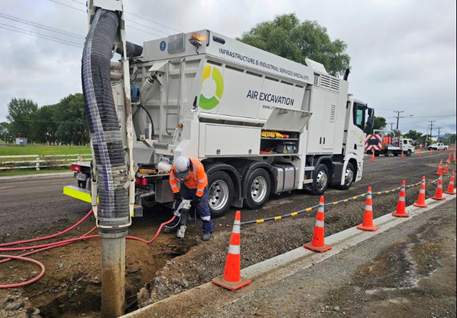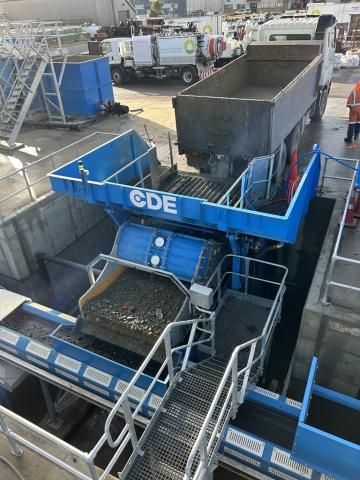At one time considered a minor by-product, hydrovac waste is now a frontline issue in the push towards a truly circular economy and a waste stream with high potential as a sustainable alternative to virgin quarried sand and aggregates, especially for island economies.
Rapid redevelopment and growing urbanisation has given rise to non-destructive digging (NDD) as a reliable, precise method of excavation in high density areas, however the trade-off is a large volume of difficult-to-process slurry containing a mix of soil, water, and debris.
According to Stats NZ, New Zealand's official data agency, the country’s total urban area expanded by 14.6 percent (or 30,264 hectares) between 1996 and 2018. Since 2018, the total population of Aotearoa New Zealand has grown by an average of 1.3 percent per year to reach 5.31 million at the end of 2024. Recent estimates show the population reaching 7 million by the 2060s.
CDE business development executive Eoin Butcher said this upward trend in population growth and urban land cover will lead to continued reliance on hydro excavation.
“With increased urban density comes a high concentration of underground utilities needing a very precise means of excavation for new development and redevelopment activities. As the population grows the adoption of NDD will only increase and so too will volume of solid-liquid waste generated.
“It’s a challenging waste stream. It’s difficult to process and it’s considered a liquid waste meaning it needs disposed of at specialised facilities, often many miles away, leading to high transportation and disposal costs.
“But effective dewatering equipment can make the process cost-effective and we’re actively working with forward-thinking companies to do just that.”
InterGroup, a leading provider of industrial and infrastructure services with over 45 years of experience, working with both local and central government. The company has invested in a new, state-of-the-art resource recovery facility at its Auckland premises. As one of the first wet processing plants of its kind in New Zealand, it provides the opportunity to reuse materials, reducing the need for disposal to landfill or fill sites.
Designed and engineered by CDE, the facility handles more than just hydro excavation waste. InterGroup has invested considerable time and effort to ensure it can also process road sweepings and drainage waste, achieving the same high-quality recovery results. The plant processes up to 10 tonnes per hour of road sweepings and hydrovac muds, dewatering the waste and recovering a variety of washed and graded aggregates.
Based at InterGroup’s Auckland depot, the resource recovery facility has a range of innovative technologies from CDE including the HYDRO:TIP solid/liquid tipping system, an AquaCycle thickener water cleaning and treatment system, and an AggMax scrubbing and classification system.
The plant is recovering around 48,000 tonnes of reusable material annually, providing excellent material recovery and achieves a 64% diversion from landfill.
The New Zealand Infrastructure Commission has found that waste from construction makes up between 40 to 50% of all waste sent to landfill – around 4.4 million tonnes annually from construction and demolition sources.
Sam Clive, general manager for business development at InterGroup, said: “Investing in a solution of this kind, with the provenance that comes with it thanks to CDE’s considerable expertise, isn’t just a smart decision environmentally. It’s also a good decision commercially. As demand for hydro excavation activities grow the volume of waste we’re left with needs to be handled in a responsible manner.
“We are recovering valuable construction materials that would have otherwise gone to landfill and at the same time reducing our own operational costs leading to reduced emissions and extending the life of our natural resources by supplementing demand with sustainably sourced recycled products. It’s a total win-win.”
The plant has been operational since beginning of 2024.







